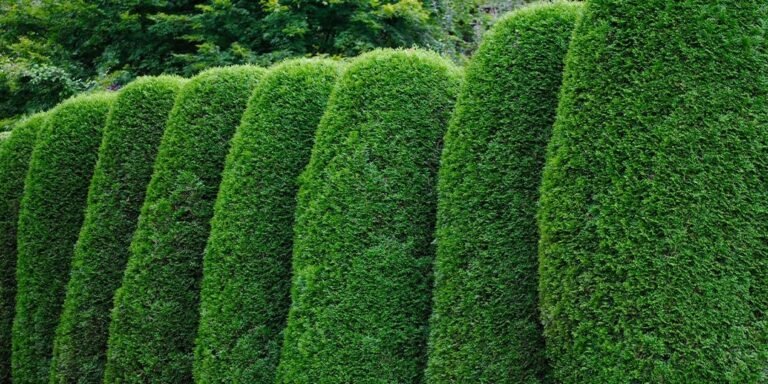Trees and shrubs with broad leaves, dense foliage, and enough hedge height are ideal for adding privacy to your property. These plants fall into broad categories like deciduous, evergreen, flowering, and gymnosperms. Experienced landscaping companies also have conifers, ferns, vines, natives, exotics, and other common distinctions. Here are four types of trees and shrubs to plant when you want increased privacy for your property:
1. Evergreen
One of the main distinctions between trees is evergreen and deciduous. Evergreen trees keep their foliage all year round with new leaves growing to replace old ones. Deciduous trees lose their foliage during winter to preserve energy. If you want to add year-round privacy to your property, plant evergreen trees and shrubs that don’t shed leaves in winter.
Some evergreen trees don’t have enough foliage to provide privacy, so work with an experienced landscaping company to identify species that match your needs. Evergreen trees and shrubs to plant for privacy include Hick’s Yew shrubs, Arborvitae shrubs, and Eastern Redcedar. Other options include Leyland Cypress, Mountain Laurel, Weeping White Spruce, Spartan Junipers, Sky Pencil Holly, and Evergreen Privet.
2. Deciduous
If you want to add seasonal vibrance with colorful flowers and foliage, plant deciduous trees and shrubs. Evergreen plants offer year-round privacy, but the colors are shades of green, blue, and yellow. With deciduous plants, you have many options each season, allowing you to create colorful hedges. Deciduous shrubs shed their leaves during fall, providing room to plant new species.
Some of the deciduous trees and shrubs with enough foliage for privacy include Flowering Dogwood, Goldspire Ginkgo, and Golden Privet. Copper Beech, English Holly, and deciduous varieties are also ideal for creating aesthetic private fences. Landscapers offer many other species with stunning foliage and colors for different seasons. Consult with a landscaper to identify, plant, and maintain the best species for your lawn, soil, and the season.
3. Vines
Planting vines and climbers like English Ivy is another solution for private hedges. English Ivy is an evergreen vine used to add aesthetics and privacy to chain-link fences. Other vines include American Wisteria, Dutchman’s Pipe, Arctic Kiwi Vine, and Climbing Hydrangea. Vines and climbers require support, which comes in the form of chain-link fences, other trees, or wood poles.
When looking for vines and climbing plants for privacy, choose woody options. Woody vines don’t re-emerge from the ground every season like other climbers, so they grow leaves and provide privacy quickly. Another option is to plant evergreen vines that don’t shed their foliage during the cold seasons. Choose climbers with broader leaves and colorful flowers to create beautiful hedges. You can also plant ornamental grasses to cover the lower heights.
4. Native
Planting native trees and shrubs has many advantages because these species already grow naturally in the region. Native plants have adapted to the area’s climate, rainfall patterns, soil, pests, diseases, and other environmental elements. These plants are more resilient and require less water, fertilizer, and pesticides, but not all are good for privacy.
Some native plants don’t have year-round foliage, broad leaves, or enough height. Find a local landscaper to help you identify native and exotic plants that are suitable for private backyard fences and borders. Experienced landscapers handle everything from custom landscape designing to plant selection and installation.
Find an Experienced Landscaping Company
Maintaining a lush, beautiful lawn or landscape requires soil quality testing, aeration, fertilizer, and weed and pest control. Involving an experienced landscaper allows you to design, install, and maintain your dream lawn. These professionals have knowledge of native and exotic plants and their care requirements. Contact an experienced landscaping company today to find out more about trees and shrubs for privacy.
